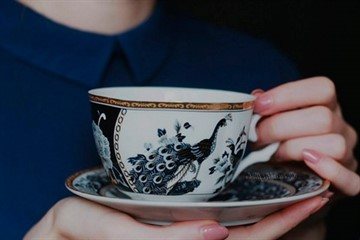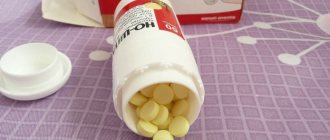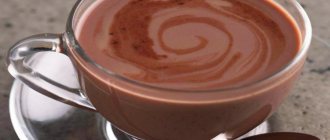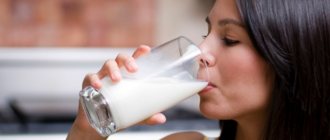Many people have heard from their grandmothers that drinking plenty of water tends to increase lactation, for the sake of which mothers are ready to do anything to preserve.
Young mothers are concerned with the question: is it possible to drink tea with bergamot while breastfeeding and how will this drink affect the composition and quantity of milk? If you can drink it, then in what quantities, how to brew it correctly and how much to consume so as not to harm the newborn?
Let's look at the pros and cons of drinking tea with bergamot and try to find out the qualities of this drink. First, let's take a closer look at the drink itself, because mothers need to know what they are going to drink and give to their children.
Benefits and possible harm
Bergamot is a citrus plant. Previously, it was used only in the manufacture of perfumes. But the British, having learned about the beneficial properties of this plant, began to use it as an additive in the production of black tea. Bergamot is added to products in the form of oil or dried peel.
In the latter case, the result is a drink with a more pronounced taste. Today there are many brands of this product on sale. Earl Gray is considered the most popular English tea with bergamot. The drink was named after Charles Gray, who served as Prime Minister of England from 1830-1834.
Bergamot tea is considered very beneficial; it contains the following substances:
- caffeine;
- phenolic compounds;
- vitamin C;
- potassium;
- fluorine.
The composition determines the presence of such valuable qualities in the drink:
- toning the body;
- strengthening blood vessels, increasing their elasticity;
- preservation of youth;
- improvement of heart function;
- strengthening teeth;
- reducing the concentration of bad cholesterol in the blood;
- improved mood;
- maintaining fluid balance in the body;
- acceleration of metabolism;
- strengthening the immune system;
- cancer prevention;
- normalization of the digestive tract.
At the same time, the drink is low-calorie: 100 grams of the product contains only 8-10 kcal. The energy value of the drink directly depends on the concentration, degree of brewing, and the presence of additional components (sugar, honey). This product can be consumed during a diet.

The drink is useful for people with hypotension: it improves blood pressure. This drink is also recommended for diabetics, as it reduces the concentration of glucose in the blood by 22%.
This tea is an aphrodisiac. Therefore, it is useful to drink for men who have problems with potency. But for some categories of people it is better not to drink tea with bergamot.
The active components of the product can lead to the following undesirable consequences:
- nausea and vomiting;
- pain in the epigastric zone;
- phytotoxicity.
Pregnant women should avoid drinking black tea with bergamot. A strong drink can cause uterine spasms and miscarriage. This product is also not recommended for hypertensive patients due to the increased risk of developing a crisis. If you have problems falling asleep, you should not drink tea in the evening: this can lead to insomnia.
Only natural tea with bergamot is beneficial. Experts do not recommend buying packaged cheap products. When choosing tea, you need to pay attention to its composition: unscrupulous manufacturers use flavoring instead of natural bergamot.
Is it possible while breastfeeding?
During the first 4-6 months after childbirth, experts do not recommend that breastfeeding women include citrus fruits in their menu due to the risk of developing an allergic reaction in the child.
From the age of six months, you can try introducing black tea with bergamot into the mother’s diet. This should be done carefully, gradually, observing the reaction of the body (yours and the child).

If such negative conditions occur, it is recommended to stop drinking the tonic aromatic drink:
- rash, redness, itching of the skin;
- sleep quality disturbance;
- flatulence, colic in the baby.
If the drink is well accepted by the body of the mother and her child, then it can be consumed regularly. Black tea with bergamot is beneficial for a nursing woman.
It saturates her body with a large number of valuable elements. Bergamot helps to calm down, relax, and cope with depression, which sometimes occurs after childbirth. It improves the functioning of the stomach.
Other important qualities of the drink for a woman include the following:

- restoration of nerve cells;
- elimination of skin rashes, inflammation;
- improving brain function;
- increased concentration;
- memory improvement;
- preventing hair loss after childbirth;
- increasing the body's resistance to viruses and infections.
Before starting to drink black tea, a nursing woman is recommended to consult a therapist and pediatrician. The doctor will tell you whether the young mother can take this drink.
Types of tea with bergamot
Tea is made in various varieties: black, green, with the addition of pieces of fruit and berries, with the addition of herbs. But only the species are considered the main ones; they are found more often. These are pure green and pure black teas with the addition of bergamot oil. Many people prefer black tea, as it is richer in flavor and more invigorating. But everyone has their own taste, some prefer green teas.
The drink is supplied to stores both in packaged form and in larger packages in large leaf form. A more popular type of tea is called Earl Gray. For its production, high-quality varieties from India, Ceylon or China are taken as a basis.
How to brew correctly?
To get the maximum benefit from the drink, you need to brew it correctly. Some people pour boiling water over raw materials several times. If this is allowed in the case of green tea, then black varieties are allowed to be brewed once.
Technology for preparing a healthy drink:
- prepare the teapot. Rinse it thoroughly and rinse with boiling water;
- pour the required amount of tea into the container. For one serving, a teaspoon of dry raw materials is enough;
- heat the water to 90-95 degrees. Boiling water should not be used as it reduces the beneficial properties of tea;
- pour hot water over tea leaves;
- close the teapot;
- let it brew for 2-4 minutes. The longer the tea is brewed, the stronger it will be.
You can make your own drink with bergamot oil. To do this, pour 50 g of black tea into a glass bowl and add a couple of drops of aromatic oil. The container needs to be shaken every day. After 5 days, the raw materials will be ready for use. It is worth brewing according to the scheme discussed above, infusing for 3 to 10 minutes.
Tea can be sweetened. But sugar is not recommended. It is worth choosing fructose instead to improve taste. This will make the drink healthier. You can also use natural high-quality honey. This product should be added to a warm or cool drink. It is important to consider the baby’s tolerance to honey.
It is not recommended to add milk to tea with bergamot. Experts consider this not the best combination in terms of taste.
Standards of use

In order to get the maximum benefit from tea and not harm yourself and the baby, it is important for a woman during lactation to follow the rules and regulations for its use.
The first time you should try a small sip of this aromatic drink and observe for two days the reaction of the body (yours and your child’s). It is recommended to start introducing tea into your diet in the first half of the day.
If no negative symptoms arise, then the woman is allowed to continue drinking the drink. But you need to increase the daily amount of tea gradually over the course of a week.
The mother should not drink the aromatic drink every day, even if it is well tolerated. It is recommended to drink tea with bergamot during breastfeeding no more than 2-3 times a week. A mother should drink no more than a cup of aromatic drink per day.
Beneficial properties of tea
Many mothers after childbirth are faced with the problem of lack of milk. Warm tea with bergamot helps increase lactation. In addition, the healing drink normalizes appetite and helps with stomach problems. It calms, relieves stress and tension.

Bergamot performs the following beneficial functions for the body:
- Relaxes muscles and blood vessels;
- Calms and improves the functioning of nerve cells;
- Stabilizes digestion;
- Eliminates dandruff and reduces oily scalp, helps with hair loss after childbirth;
- Helps with skin diseases and relieves skin inflammation;
- Reduces temperature and helps with colds, improves immunity;
- Stimulates memory and brain function;
- Reduces anxiety and fear, relieves nervous tension and helps with depression;
- Increases body tone;
- Regulates cholesterol levels;
- Helps in the treatment of thrush and cystitis;
- Fights fatigue and improves mood.

In addition, bergamot tea increases the level of breast milk production, which is important during breastfeeding. Read here what other drinks you can drink to improve lactation.
Possible contraindications
Before starting to include black tea with bergamot in her diet, a woman should familiarize herself with the contraindications to the use of this product. Regular consumption of this drink in the presence of certain pathologies can lead to a worsening of the condition.
It is recommended to avoid drinking bergamot tea in the following cases:
- stomach or intestinal ulcer;
- hormonal disbalance;
- increased gas formation, colic in a baby;
- allergy to citrus fruits;
- disorders of the thyroid gland;
- individual intolerance to black tea;
- serious problems with the myocardium and arteries (hypertension, heart failure);
- pathologies of the liver, kidneys;
- taking a course of antibiotics.
A woman should give up black tea if, after drinking it, the following changes in well-being are observed:
- nausea, vomiting;
- headache;
- insomnia;
- abdominal pain.
Harm of bergamot for babies
Bergamot drink has a positive effect on lactation, but it can cause a negative reaction in both mother and baby. Excess consumption of such tea causes dizziness and weakness, nausea and vomiting, and stomach pain. The baby may experience increased colic and allergies.
An allergy to citrus fruits often manifests itself in the form of a rash, redness and itching of the skin. If you notice a negative reaction in your child, immediately stop taking the tea and temporarily switch to a hypoallergenic diet. Do not take medications yourself or give them to your baby without consulting a doctor! For more information on what to do if a child has food allergies, read the link https://vskormi.ru/problems-with-baby/pischevaya-allerguya-u-grudnichka/.
Subscribe to our VKontakte group










